“Brazil is back!” Brazilian President-elect Luiz Inácio “Lula” da Silva exclaimed in a victory speech delivered after the election was called in Brazil’s largest metropolitan city, São Paulo. Following a bruising campaign season, humbling run-off election, and narrow victory, Lula completed his “phoenix”- like comeback to return as president for four more years.
The election marked several firsts. Incumbent President Jair Bolsonaro became the first candidate since Brazil’s return to democracy in 1989 to lose his reelection bid, and it was his first election loss of his more-than-three-decade political career. It was also the smallest margin recorded in a presidential contest and the first time in victory that Lula garnered less than 60% of the overall vote.
Though widely seen as a repudiation of Bolsonaro’s tenure, the election handed Lula a slim mandate in a hobbled democracy, where mistrust and polarization are high. The return of Lula will likely bring more predictable and well-trodden conflicts and collaborations between the United States and Brazil. But perhaps most critically, democracy in the world’s fifth most populous country seems likely to endure well into the future, despite legitimate fears of its decline.
BRAZILIAN DEMOCRACY SURVIVES A SERIOUS THREAT, FOR NOW
During a heated campaign season, Bolsonaro announced that the election would either end in his victory, death, or arrest. Despite these threats and an information ecosystem rife with falsehoods, the post-election fears of a democracy-destabilizing event akin to the post-2020 U.S. election environment seem unlikely to happen.
There are several possible reasons why Brazil’s electoral process should be able to withstand Bolsonaro’s attempts to undermine it. Perhaps most importantly, Brazil’s voting process is both electronic and centralized, eliminating the need for a counting process strung out over multiple days and jurisdictions. In Brazil, the election results were called a few hours after precincts closed. In the United States, it took 3.5 days. Electronic voting machines automatically count votes in Brazil and submit them to a central office. Although this creates space for other types of falsehoods to circulate, it removes the potential for misleading and decontextualized videos and claims about vote counting to circulate widely.
Other institutions in Brazil also served as an effective counterweight to check the executive, despite their relative youth. In Congress, politicians — who hail from a loose collective of weak political parties — moved quickly to recognize Lula’s election victory, including many who supported Bolsonaro’s reelection bid. And members of the Supreme Federal Court, which played a critical role in reining in misinformation and illegal highway blockades, refused to meet Bolsonaro until he acknowledged that a peaceful transfer of power would occur. The country’s armed forces signaled that they would not get involved and found no evidence of voter fraud, complicating the potential for a military coup. Outside Brazil, political leaders from around the world — including from United States and China — were quick to recognize the results of the election.
Although Bolsonaro refused to address the public for nearly 48 hours, allowing calls for him to “never concede” to gain traction and potentially transform into a popular uprising, so far his supporters have only managed a series of disruptive road blockages across the country. Even during this silence, signals from his inner circle hinted that he would stand down and respect the election results. When Bolsonaro finally did speak from the Palácio da Alvorada he did not concede and only joked “you’re going to miss us.” The statement was short and intentionally vague, but he left it to his chief of staff to reiterate their willingness to cooperate with the transition. Bolsonaro could change his tune with some cajoling, but it will be difficult to backtrack from the statements his team has already made, even as far-right commentators in the U.S. call for “the beginning of a Brazilian Spring.”
THE ROAD AHEAD FOR LULA
On January 1, 2023, Lula will be inaugurated for the third time as president of Brazil, marking a dramatic shift in the political trajectory of Latin America’s largest economy and a stunning comeback for the country’s “most hated and loved man.” What might be his plans when he takes office? To understand Lula’s political agenda, it’s certainly informative to look to the past — where from 2003 to 2011, he presided over a Brazil on the rise. Growth averaged 4.5% annually, Brazil asserted itself as an independent voice on the international stage, and 20 million Brazilians were lifted out of poverty due to social welfare programs.
Perhaps the most critical lesson to draw from these years is that, if anything, Lula is a pragmatist. Fears of the “communist” Lula have been greatly exaggerated for years. After losing the presidential election three times, Lula worked to moderate his image and assure global markets that his presidency wouldn’t be destabilizing. Over eight years, he raised interest rates to combat inflation, presided over a commodity boom that helped fuel social spending, and worked diligently to increase the attractiveness of Brazil for foreign investment. As part of a “big tent” approach during the campaign, he lured in former political rival Geraldo Alckmin, a centrist, as his vice president. With a divided Congress ahead of him, coalition building and compromise will be required to govern with limited gridlock.
The president-elect has also indicated that he will expand size of the Brazilian state, which contracted dramatically under four years of Bolsonaro. With the potential addition of up to 10 new ministries, Lula’s team aims to not only disentangle some responsibilities that were collapsed during the Bolsonaro presidency and expand into new areas, but also reward allies who helped his campaign — and maybe even win a few new friends. The Lula government will also likely refocus attention on augmented social spending and empower state-run companies, like Petrobras, that were hollowed out during the Bolsonaro years. While these state entities can serve an important function, they also were primary targets for corruption, which have plagued Lula and his Worker’s Party and others across the political spectrum. These activities likely will be closely watched by the opposition, and bolsonaristas in Congress will seek out any opportunity to revive corruption charges that stymie the president’s agenda. As a result, transparent, by-the-book processes will be critical if Lula is to make even modest changes.
In the foreign policy space too, Lula has made his intentions clear. During his tenure in office, he pushed for a multipolar world order with a leading place at the table for Brazil. He devoted significant time and attention toward strengthening multinational groups, like the BRICs (Brazil, Russia, India, China, and South Africa), and regional institutions, like Unasur. It is likely that we will see a return to these aspirations, with Lula’s foreign policy team seeking to operate as an interlocutor with the capacity to broker nonviolent solutions to international disputes, as they once tried to do in Iran in 2010. For better or worse, we are already seeing signs of this from Lula the candidate, who blamed both sides for the conflict in Ukraine and offered Brazil as a negotiating partner to help bring about an end to the war.
As in the past, Brazilian’s foreign policy aspirations may conflict with U.S. objectives internationally. However, much like in previous eras, the U.S. will also find a willing partner in a variety of domains. Among the most widely discussed is climate change. The election in Brazil was viewed as a referendum on “the planet’s future,” with the fate of the Amazon rainforest hanging in the balance. Despite some controversial past environmental policies, Lula’s victory — and his close alliance with leading Brazilian environmentalist Marina Silva — represents a dramatic shift in Brazil’s environmental policies after an acceleration of deforestation under Bolsonaro. Another perhaps less discussed area where collaboration may be possible will be in strengthening the appeal of democratic governance around the world, particularly in the global South. This cooperation could focus on uplifting Brazil as a positive example of democratic values and norms, at a time when many democracies around the world are teetering.
Although Lula’s prior tenure provides some clues as to his future objectives, current challenges will inevitably reshape his plans in office. With a commodity boom unlikely, funding the expansion of social programs will remain a challenge, and any perceptions of fiscally imprudent spending will likely be met with swift backlash. With an exceedingly narrow mandate from voters, Lula will need to devote significant attention toward repairing trust in democratic processes and implementing credible anti-corruption measures, while also contending with an increasingly activist judiciary.
For now, however, democracy will endure in Brazil, thanks in part to the resilience of institutions and unwavering support of democratic norms from influential figures in Brazilian politics and elsewhere. Brazil seems to have heeded warning signs from the 2020 elections in the U.S. It’s time for the U.S. — and other nations around the world — to learn their own lessons from Brazil.
The Brookings Institution is committed to quality, independence, and impact.
We are supported by a diverse array of funders. In line with our values and policies, each Brookings publication represents the sole views of its author(s).

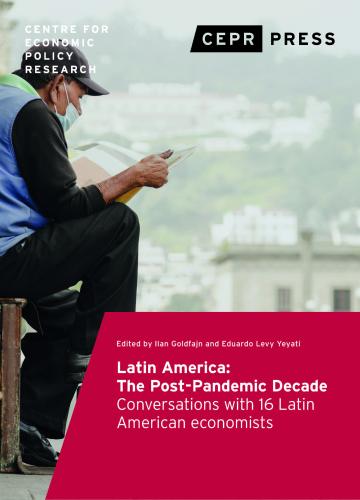
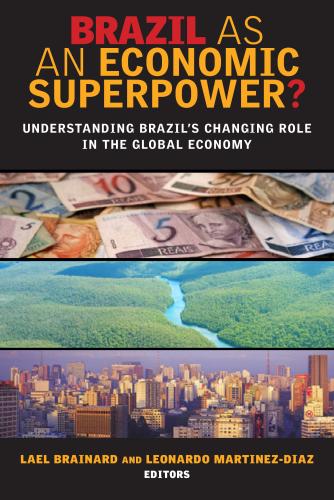
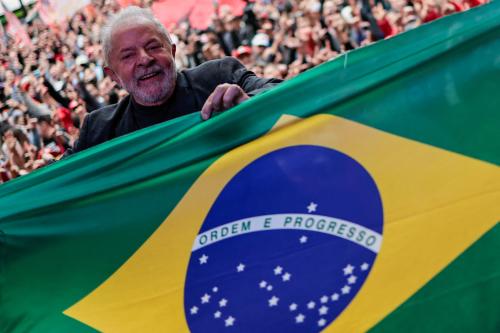
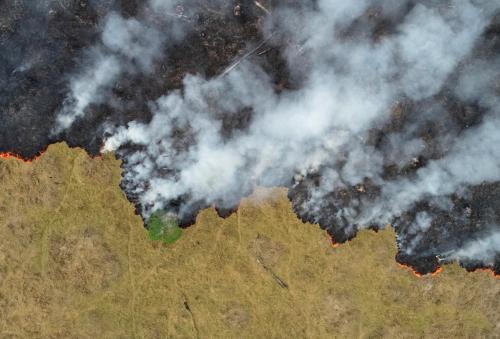
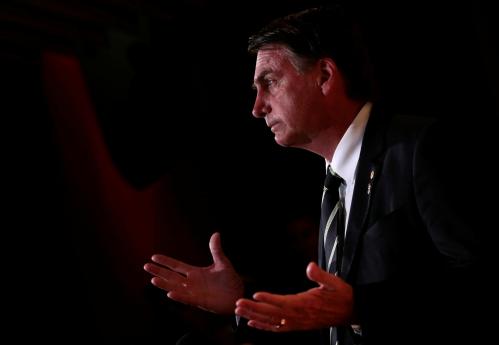


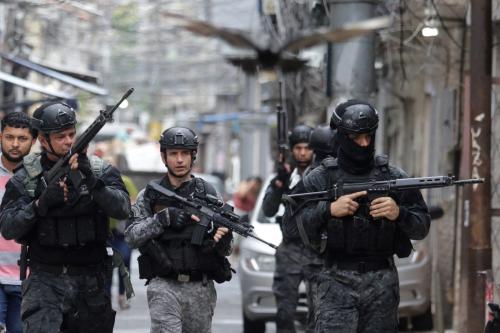
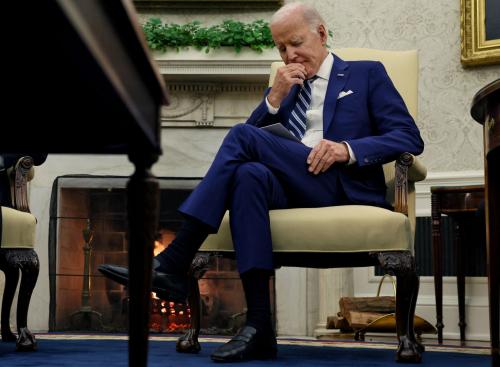
Commentary
After a victory for democracy, what is Brazil’s road ahead?
November 9, 2022